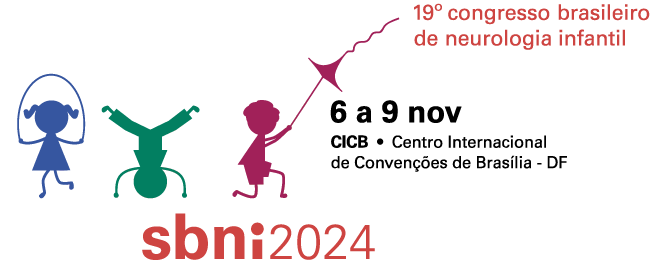Dados do Trabalho
Título
DEFICIENCY DISEASES DURING PREGNANCY AND THEIR ROLE IN THE DEVELOPMENT OF AUTISM SPECTRUM DISORDER
Introdução
Autism Spectrum Disorder (ASD) is characterized by deficits in social interaction and the presence of restrictive and repetitive patterns of behaviors, interests or activities. It is associated with genetic and environmental risk factors, including deficiency diseases during pregnancy, such as vitamin D (VD) and selenium (Se) deficiency. OBJECTIVE: To evaluate the relationship between nutritional deficiencies during pregnancy and Autism Spectrum Disorder.
Objetivo
To evaluate the relationship between nutritional deficiencies during pregnancy and Autism Spectrum Disorder.
Método
Qualitative and descriptive narrative review of the literature with articles selected from the PubMed and ScienceDirect databases, published from 2020 to 2024, in English, using the DeCS/MeSH terms: “Deficiency Diseases”, “Pregnancy” and “Autism Spectrum Disorder”, with the Boolean operator "AND/E". Applying the inclusion/exclusion criteria, 6 articles were considered for this study.
Resultados
Among the selected articles, five concluded that inadequate levels of vitamin D during pregnancy (≤30 ng/mL) are associated with an increased risk of ASD compared to adequate levels. In contrast, associations between lower concentrations of vitamin D (<25 nmol/L) in mid-gestation or at birth resulted in a greater number of children diagnosed with ASD. Furthermore, selenium has been shown to be a micronutrient also involved in supporting a healthy pregnancy. Suboptimal serum selenium levels (<110-125 mcg/l) and its progressive decline during pregnancy, approximately 20% from the first to the third trimester, may be associated with a greater need for autism screening, given the higher incidence of clinical features of this disorder, suggesting that low perinatal selenium levels may be a modifiable nutritional risk factor for ASD in children.
Conclusão
Vitamin D and selenium deficiencies during pregnancy have been shown to be important modifiable risk factors for Autism Spectrum Disorder, suggesting that nutritional aspects may have a direct impact on the incidence of ASD, therefore being a promising field for further studies. However, due to the scarcity of data, especially on selenium, more robust studies are needed since such findings may have important implications for public health, as deficiencies in these nutrients can be easily prevented with adequate supplementation.
Referências
KAMIL DEMIRCAN et al. Maternal selenium deficiency during pregnancy in
association with autism and ADHD traits in children: the Odense Child Cohort.
Free radical biology & medicine, 1 maio 2024.
QI, X. et al. Maternal multivitamin supplementation is associated with
symptoms in offspring with autism spectrum disorder: A multi-center study in
China. Research in autism spectrum disorders, v. 111, p. 102309–102309,
1 mar. 2024.
SAIDI, L. et al. Maternal vitamin D deficiency and brain functions: a
never-ending story. Food & Function, v. 14, n. 14, p. 6290–6301, 17 jul.
2023.
UPADHYAYA, S. et al. Maternal Vitamin D Levels during Pregnancy and
Offspring Psychiatric Outcomes: A Systematic Review. International Journal
of Molecular Sciences, v. 24, n. 1, p. 63, 21 dez. 2022.
WANG, B. et al. A Probable Way Vitamin D Affects Autism Spectrum Disorder:
The Nitric Oxide Signaling Pathway. Frontiers in Psychiatry, v. 13, 26 maio
2022.
WANG, Z.; DING, R.; WANG, J. The Association between Vitamin D Status
and Autism Spectrum Disorder (ASD): A Systematic Review and
Meta-Analysis. Nutrients, v. 13, n. 1, p. 86, 29 dez. 2020.
Palavras Chave
Deficiency Diseases; Pregnancy; AUTISM SPECTRUM DISORDER
Área
Transtornos neuropsiquiátricos e distúrbios de aprendizagem
Autores
ANA JÚLIA DA COSTA BEZERRA, VALESKA CRISTINA BULHÕES DE SOUZA, ADÁLIA LOUÍSE DE MESQUITA FERNANDES, LAURA MASSARANDUBA NUNES, FLÁVIA KARINA CÂMARA DO VALE, THIAGO EMANUEL VÉRAS LEMOS
